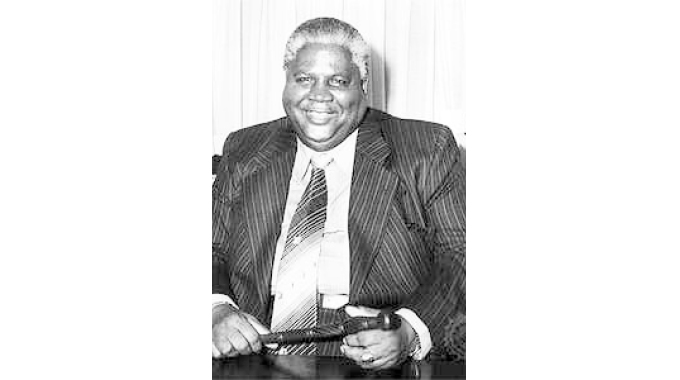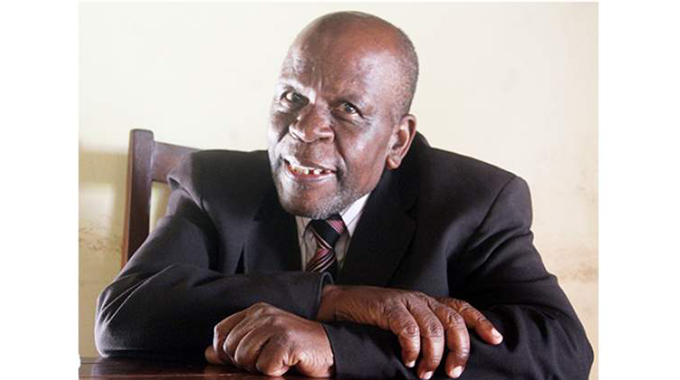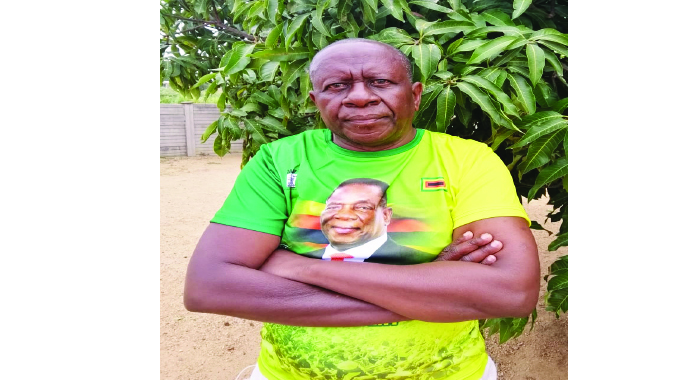
The Sunday News

WE continue our interview with Cde Mitsho Mlobi Ndlovu aka Cde John Sidambe who in the past two weeks has been narrating to us how he was inspired by the visit by the late Vice-President Dr Joshua Mqabuko Nkomo to his family’s plot in Gwatemba to join politics and eventually the armed struggle, training at Mwembeshi in Zambia where one of his instructors was his elder brother, Cde Tennyson “Thambolenyoka” Ndlovu, uMagedleni and then his deployment to the front.

The late Dr Joshua Nkomo
Today in his conversation with our Assistant Editor Mkhululi Sibanda (MS) Cde Ndlovu resumes his story by telling us about his deployment to the front. Below are excerpts of the interview. Read on . . .
MS: Last week you were telling us about your stay at FC (Freedom Camp), when you eventually deployed.
Cde Ndlovu: We have been at FC for sometime and us trained guerillas were getting frustrated. We wanted to go to the front and fight. Then the day of deployment finally came and I was deployed to BL2 that was facing the Mashonaland West Province. When we got to BL2 I found Cde Fred Tapela in charge of communications. Do you know who Cde Fred Tapela was?
MS: Obviously not.
Cde Ndlovu: That was my other elder brother, Charles Ndlovu. He was called Cde Fred Tapela during the war. He was one of the senior guerillas whom we found at the forward base at BL2.
MS: So how many people from your family were in the war?
Cde Ndlovu: I told you last time that in my family we were six, five boys and one girl. All the five boys participated in the armed struggle. The only person who did not go to war was our sister, Thabitha. Thina sonke amajida we fought in the decolonisation of this country. So my father and mother supplied a guerilla stick to Zipra to fight for this country, a great contribution on its own from a family point of view.
Tennyson that is Thambolenyoka is the first born and his twin brother was Taizen who also went to the war. Unfortunately, Taizen was injured at Mgagao during the Zipra and Zanla clashes. Although he was never the same person again, Taizen lived to see the Independence and died some years back after the turn of the century.
After the twins comes Charles Ndlovu, the Fred Tapela I met at BL2 as a communications officer. He served in the Zimbabwe National Army as a Major working under One Brigade. Sisi Thabitha who is now late was born after Charles.
I was born after Thabitha and the last born was Major Ndlovu, do not confuse it with the military rank, it is his name. Major worked at 4 Brigade after the war and left the army as a Lt-Col.
MS: You said after Independence you all served in the army, that brings the question of how you treated Thambolenyoka who operated as a dissident during the 1980s.
Cde Ndlovu: Leyo angikwazi ukuthi uthi ngiyithini. (I don’t know what to say) It’s a tricky one. I can only say he was where he was and we were serving the State. That’s it, I can’t say anything, in fact we are past that period. As siblings we are a united group.

Thambolenyoka
MS: Then let’s go back to your deployment. Take us through that process.
Cde Ndlovu: At BL2 we found Cde Skin who was in charge there. We did not stay long before we crossed over to Rhodesia. However, a unit that went ahead of us was attacked by the Rhodesians while trying to cross the Zambezi and we lost quite a number of comrades there, but when it came to us we crossed without any incident.
It was not easy negotiating the Zambezi Escarpment before reaching the villages, a number of comrades have spoken about that on this platform. When we were deployed we had among us veterans, guerillas such as Sondlo and Mapompa who had been operating in Mashonaland West for sometime and that was December 1977.
We were in Malipati, Vuti areas. I was given a section of 12 to command. We had contacts in those areas and then we felt the situation was not favouring us, so we, that is my section decided to leave Mash West and move towards Midlands. That is how I ended up operating in Gokwe.
MS: So tell us about your movement to the Midlands, any contacts with the enemy along the way?
Cde Ndlovu: We avoided contacts at all costs as we did not have a grip on the area and also because we did not want to deplete our ammunition. The only mishap we had was when we got into death traps, the Rhodesians had in some areas dug some pits to trap guerillas.
So one night when we were moving I fell into that pit and the comrades had to make a rope using our gun slings to pull me out. We finally arrived in the Sanyati area where along Sanyati River we found some fishermen and those people sheltered us for some days. There had some makeshift huts made out of dagga and poles. I then fell sick, it was strange as I had problems with seeing.
Miraculously the old man who was sheltering us applied some traditional medicine and I recovered. We crossed Sanyati River using some canoes supplied by the fishermen. The Rhodesians had a base near Sanyati Bridge. We avoided them and moved towards Gokwe and arrived at around 1am at a big homestead which had 25 huts.
When we got near to the homestead we noticed that there were people in one of the huts and we moved closer. To our utter shock we found one man and six women all naked doing some rituals, up to now I believe those people babengaba thakathi (they were witches). We moved away and set base within the village.
In the morning we approached villagers and that is when we found out that we were in Chief Chireya’s area. While we were still trying to settle down there was word that Chief Chireya had passed on. We witnessed the burial of the chief whom we were told had not been feeling well.
From there we moved to kwaGumunyu area and I can say we were the first freedom fighters to arrive and deploy in that area. That was January 1978.

Cde Mitsho Mlobi Ndlovu
MS: Since you were the first to arrive in that area how did the people take you?
Cde Ndlovu: The people were very hostile towards the guerillas. I mean both Shona and Ndebele speaking because Gokwe is a mixture of the two tribes, so at first we failed to have a foothold. Then while we were still kwaGumunyu some people came to us and said there were some armed people who had been spotted in the area and were saying they were guerillas from Mozambique.
We then thought that they might be Zanlas and we got interested. On second thoughts we told ourselves that we should be careful. We decided to split, that is the 12 of us. I instructed four guerillas to remain kwaGumunyu while I took eight with me to move further. Six kilometres from where we had left villagers indeed confirmed that those armed people had been sighted and were dressed like us, khakhi combat gears.
However, we did not come across them. We then returned where we had come from after doing some rounds to familiarise ourselves with the area. When we got back where we left the four we found out that they had come under attack with one comrade killed and his body taken by the Rhodesian forces who also had a chopper.
We then realised that those armed people the villagers were talking about were Selous Scouts. That was the first contact although in my absence. The second contact was when we raided stores for supplies at kwaGumunyu Business Centre. We went there and unknown to us was that there were Rhodesians nearby, they allowed us to move into the shops and then started firing.
It was a close shave for us as we managed to make a breakthrough. From there we moved to Nembudziya and in terms of acceptance by the population the situation was the same.
MS: What was the real problem?
Cde Ndlovu: The villagers or people there were not fully politically oriented as yet. That is what we realised. If we were rough we could have killed many people there, but we decided to be a little bit patient and explain why were fighting that war. Also the party structures were very weak in those areas at first. The parties, Zapu and Zanu had failed to build structures there.
There was little or no political organisation there at that time.
To be continued next week



